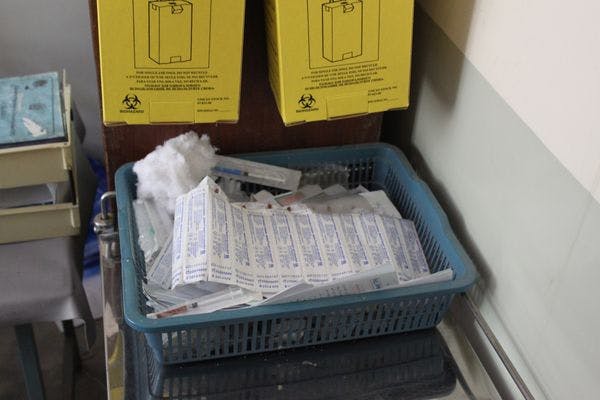Wikimedia - The global fund - CC BY-SA 4.0
Key harm reduction messages for the replenishment conference, implementation of new Global Fund Strategy and NFM4
By the International Network of People who use Drugs, the Eurasian Harm Reduction Association and Harm Reduction International
In advance of the Global Fund Seventh Replenishment Conference to be hosted by President Biden in New York on September 19, 2022, the International Network of People who use Drugs (INPUD), the Eurasian Harm Reduction Association (EHRA) and Harm Reduction International (HRI) developed key harm reduction messages from implementation of the new Global Fund Strategy and the NFM4 cycle.
Harm reduction investment from international donors and governments in low and middle-income (LMI) countries totalled US$131 million in 2019 - just 5% of the US$2.7 billion UNAIDS estimates is required annually by 2025 for an effective HIV response among people who inject drugs. The Global Fund is the largest donor for harm reduction, providing at least 60% of all international donor support. The outcome of the replenishment will have significant consequences for harm reduction. The protection and scale-up of harm reduction programmes in low- and middle-income countries requires a fully funded Global Fund. An underfunded Global Fund will result in service closures, a reversal of gains made in HIV prevention among people who use drugs and ultimately, lives lost.
They urge the Global Fund and the wider donor community to be proactive in protecting harm reduction within all replenishment scenarios, in implementation of the Global Fund Strategy 2023-2028 and during the NFM4 cycle. The recommendations centre on the following five areas:
Harm reduction funding must be protected from any replenishment shortfall
Catalytic investments for harm reduction and key populations must continue regardless of replenishment outcome
Funding for community-led responses must be prioritised within NFM4, both for harm reduction and pandemic preparedness and responses
Funding for efforts to increase domestic investment in harm reduction, and broader key population programming must be increased
Funding for harm reduction in crisis must be protected and prioritised
